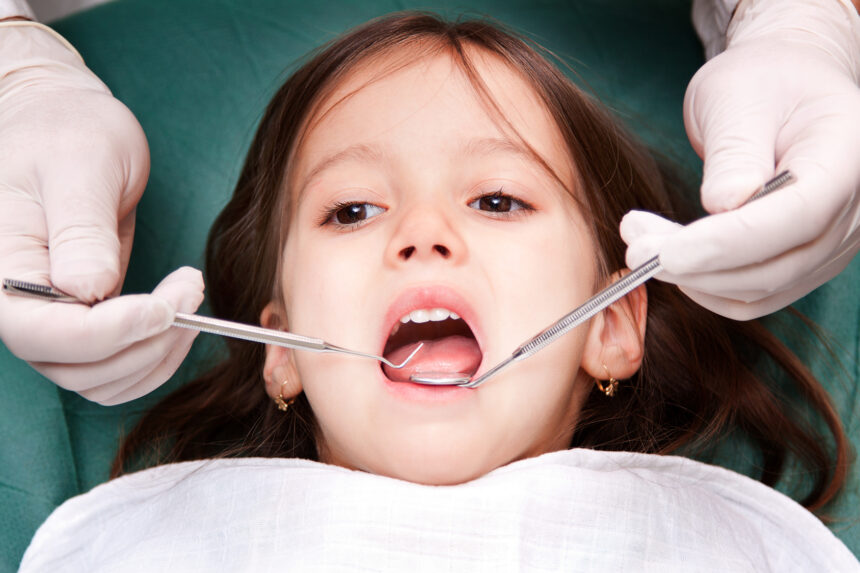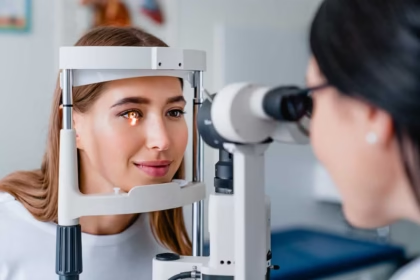Ensuring strong and healthy teeth in childhood lays the foundation for lifelong oral health. Dental care for children starts earlier than many parents realize. With the right approach, you can prevent cavities, build good habits, and give your child a confident, cavity-free smile.
Why Is Dental Care Important for Children?
Children are particularly vulnerable to dental issues such as tooth decay, early gum disease, and misaligned teeth. Starting oral hygiene early helps:
- Develop healthy habits
- Prevent painful dental problems
- Avoid costly treatments in the future
- Support proper chewing and speech development
When Should Dental Care Begin?
H3: From Infancy
Dental care should begin even before the first tooth erupts. Wipe the baby’s gums with a clean, damp cloth after feeding.
H3: First Tooth = First Dental Visit
As soon as the first tooth appears — usually around 6 months — schedule the first dental appointment. According to the American Academy of Pediatric Dentistry, the first dental visit should occur no later than the child’s first birthday.
Best Child Dental Care Tips for Parents
Let’s explore the top tips every parent should know to protect their child’s dental health.
1. Establish a Brushing Routine Early
Start brushing as soon as the first tooth comes in using a soft-bristled baby toothbrush and fluoride toothpaste (rice grain amount for infants, pea-size for kids over 3). Help and supervise them until at least age 6–7.
Tip: Make brushing fun with music or a brushing app!
2. Teach Proper Brushing and Flossing Techniques
Show your child how to:
- Brush gently in circular motions
- Clean every tooth surface — front, back, chewing surface
- Floss daily once two teeth touch
Parent tip: Use floss picks for easier access.
3. Avoid Bottle at Bedtime
Letting your child sleep with a bottle of milk, juice, or formula can lead to baby bottle tooth decay. If needed, only water should be in the bottle at bedtime.
4. Limit Sugary Foods and Drinks
Sugar is the top enemy of healthy teeth. Limit:
- Sweets, candies, and sodas
- Packaged juices and sticky snacks
Encourage tooth-friendly snacks like cheese, yogurt, fruits, and crunchy veggies.
5. Schedule Regular Dental Visits
Routine dental checkups every 6 months allow early detection of cavities, gum problems, or alignment issues.
Pediatric dentists are trained to make visits friendly and stress-free.
6. Consider Dental Sealants
Dental sealants are a protective coating applied to the chewing surfaces of molars to prevent cavities. Dentists often recommend sealants for kids aged 6 and above.
7. Use Fluoride Wisely
Fluoride strengthens enamel and prevents decay. Ensure your child:
- Uses fluoridated toothpaste
- Drinks fluoridated tap water (if available)
- May receive fluoride treatments at dental visits
8. Encourage Healthy Oral Habits
Teach your child the value of dental health by:
- Being a role model — brush and floss with them
- Rewarding good oral habits with stickers or stories
- Talking positively about dental visits
9. Watch Out for Teeth Grinding and Thumb Sucking
Extended thumb sucking or grinding (bruxism) can damage teeth alignment. Consult your dentist if these habits continue beyond age 4–5.
10. Protect Teeth During Sports
If your child plays contact sports, invest in a custom-fitted mouthguard to prevent dental injuries.
Common Dental Problems in Children
| Problem | Description | Prevention |
|---|---|---|
| Tooth decay (cavities) | Caused by bacteria + sugars | Brushing, diet control, dental visits |
| Gum inflammation | Red, swollen, bleeding gums | Flossing and brushing properly |
| Early tooth loss | Often due to decay or injury | Oral care, mouthguards |
| Misalignment/crowded teeth | Teeth grow in wrong position | Early orthodontic evaluation |
Conclusion
Your child’s smile is precious — and as a parent, you have the power to protect it from the start. By building healthy routines, keeping sugary snacks in check, and scheduling regular dental checkups, you ensure that your child develops a strong foundation for lifelong oral health. Remember, healthy habits learned young last a lifetime.
Frequently Asked Questions (FAQs)
1. At what age should I take my child to the dentist for the first time?
You should schedule the first dental visit by your child’s first birthday or within 6 months after the first tooth appears.
2. How often should kids go to the dentist?
Children should visit the dentist every 6 months, unless the dentist recommends more frequent visits due to specific issues.
3. What toothpaste should I use for my child?
Use fluoride toothpaste:
- A rice-sized smear for children under 3
- A pea-sized amount for children 3 and older
4. Is thumb sucking harmful to my child’s teeth?
Prolonged thumb sucking (past age 4–5) can lead to misaligned teeth and bite issues. Discuss with your dentist if it continues.
5. Are dental X-rays safe for children?
Yes, dental X-rays use minimal radiation and are considered safe. Dentists only use them when necessary and with protective shields.
6. Can baby teeth get cavities?
Yes, baby teeth are just as prone to decay as permanent teeth. Cavities in baby teeth can cause pain, infection, and spacing issues.
7. Should children floss even if they have gaps between their teeth?
Yes. Flossing is important as soon as two teeth touch, regardless of gaps, to remove food and plaque between teeth.
8. What should I do if my child is afraid of the dentist?
Choose a pediatric dentist who knows how to handle anxious kids. Read books about dental visits, play pretend dentist games, and stay calm yourself.
Agar aap chahte hain ke main is article ko kisi spe









